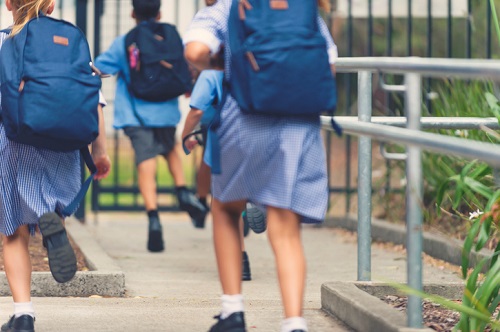
The United Nations has estimated that over the next decade, the number of overweight children under five will jump from 42 million to 70 million.
However, the number of young people with obesity in Australia is rising. An estimated 28% of children and adolescents in Australia are overweight or obese, putting the onus on parents and schools to take urgent action.
This week, a survey of 1,000 Victorian households revealed that an alarming 70% of children don’t walk or ride to school, with most parents – even those living less than 750m from their school – dropping their kids off by car.
The research, published by the Australian Catholic University (ACU), coincides with VicHealth’s Walk to School month, which encourages children to be more physically active.
ACU researcher, Alison Carver, said convenience and stranger danger fear were the main reasons parents stopped their children from making their own way to school.
Dr Carver, from the Mary MacKillop Institute for Health Research, was the lead author on the latest VicHealth research which analysed travel data from more than 1,000 primary school families who lived within 2km of their school.
Children who made their own way to school were more active and walked, rode or scooted to class instead of catching a lift or the bus.
Dr Carver said it was vital to make sure kids were physically active every day.
Being a habitual source of physical activity, the daily trip to school is one of the best value investments we can make for their future health,”
Physical inactivity has been linked to an increase in the risk of chronic diseases such as cancer, mental health and cardiovascular disease later in life.
The survey, which also involved researchers from RMIT and the University of Melbourne, highlighted the importance of supporting parents to encourage their children to walk or cycle to school independently.
“Our research shows independent kids are more active kids. Kids who travel with their parents to school are more likely to be driven and are less likely to walk, ride or scoot,” she said.
“We know there are several factors behind this including parents fitting the pickups and drop offs into their busy schedules, the distance to school and the walkability of their neighbourhood.”
Dr Carver added that many parents are scared to let their kids travel to school by themselves.
“This is why programs like VicHealth’s Walk to School program are important, as it encourages kids to build their skills to be able to walk to school safely and parents to feel comfortable,” she said.


